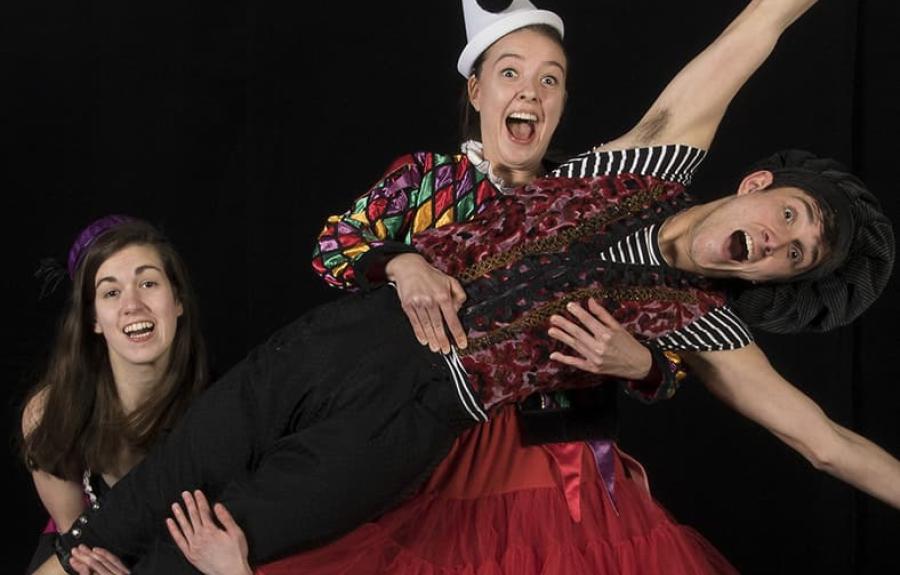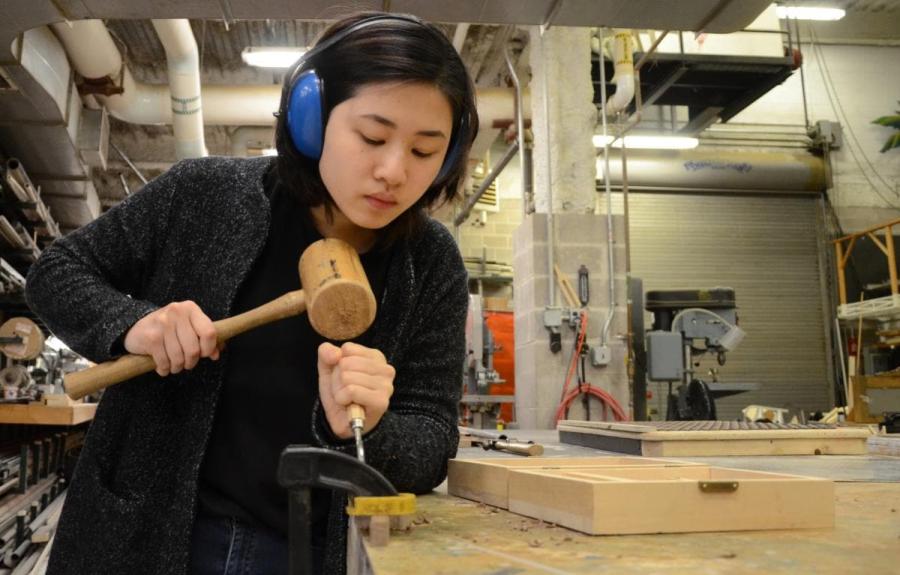Leaves of Absence
If you need to step away from your graduate training for a period of time, you may decide to take a leave of absence. Leaves may be requested for health, parental, or personal reasons. A leave pauses your student status, with the opportunity to return to your program at a set time. Because you do not have student status during a semester on leave, you do not have access to Cornell University resources (such as the library, gym, etc.)
A Health Leave of Absence (HLOA) is designed to provide students with a break from their studies to attend to treatment or management of a health condition. Any Cornell student can request to take an HLOA. The University’s goal is to enable students to address their health needs and return to complete their academic program. International students who take a health leave of absence may be able to remain in the US to seek treatment and maintain their student visa status, but this needs to be worked out on an individual basis.
- The Health Leaves Coordinator provides case management support and serves as a point of contact throughout the leave and return processes.
- There is no minimum duration for health leaves. The duration of the HLOA will depend upon the time the student needs for treatment and/or recovery and the resolution of academic conditions determined by the student’s college. The maximum duration is four years.
- Most tuition insurance policies will only provide reimbursement if a student needs to take a leave for medical reasons.
If you are considering a HLOA, please consider speaking with the Office of Graduate Student Life for help in understanding the range of details involved in applying for an being approved for this leave. The following forms can will assist with requesting, and returning from, a HLOA:
- HLOA request form
- HLOA documentation
- Personal Statement: Request to Return from a Health Leave of Absence
- HLOA Release of Information Authorization
Maternity and paternity accommodations, although not technically a leave, offers six weeks of paid accommodation (eight weeks for the birth mother for a cesarean section delivery) OR up to two semesters of reduced load status depending on your circumstances. To initiate the parental accommodation, complete and return the Parental Accommodation Request form.
A student may opt to take a leave of absence for personal reasons that are neither health related nor fit the criteria of a parental accommodation. Personal leaves are managed by the College of Arts and Sciences. They are typically available to student for up to 12 months and renewable for a maximum of four years.
Humanities Scholars Program
Another exciting development for undergraduate students in the humanities, including Comparative Literature, is the new Humanities Scholars Program launched this year by our own Paul Fleming (Professor of German and Comparative Literature), who is currently the Taylor Family Director of the Society for the Humanities. The program encourages undergraduate students who are interested in the humanities, regardless of their college or intended major, to engage in humanities research from their first semester at Cornell and to work closely with humanities faculty as well as peers with related interests. Read more about this exciting program here.
New Faculty Publications
In faculty news, two of our colleagues published new books this year. Jonathan Monroe’s Framing Roberto Bolaño: Poetry, Fiction, Literary History, Politics, a labor of love that has been in the works for a number of years, is Professor Monroe’s third major monograph and the most comprehensive book to date on the work of the Spanish-language writer
Naminata Diabate, who will be awarded tenure in the department later this spring, recently published her first book Naked Agency: Genital Cursing and Biopoltics in Africa, with Duke University Press. This fascinating study explores what Professor Diabate calls practices of “insurrectionary nakedness” by women in a number of different African cultural contexts, who disrobe or display the naked body as a form of protest or as a means of expressing feminine political agency.
Faculty News
Diabate’s multidisciplinary work on African literature, film, new media and politics represents one of several exciting new areas of research in the department, which has recently expanded to include fields that probably had little or no visibility at the time you took your last courses in the department. Cathy Caruth and Laurent Dubreuil, for example, recently created the Ape Testimony Project to collect first-person testimonies about encounters between humans and other great apes that explore what it means for chimpanzees, bonobos, gorillas, orangutans and humans to live and work together. This project emerged out of Dubreuil’s longstanding research on language acquisition among bonobo primates, but has developed in new directions as Professor Caruth has brought to the topic her own longstanding interest in trauma studies Several dozen hours of testimony have been collected so far, and many of the edited videos are already available on the website, which you can visit here.
Professors Debra Castillo and Anindita Banerjee, meanwhile, were recently awarded a major grant through the new Global Grand Challenges Migration Initiative that will support workshop development and student travel in their new Spring 2021 course on Border Spaces and Environmental Justice. In order to develop both a theoretical framework and a methodological toolkit for this innovative project, Castillo and Banerjee plan to enhance the course with three workshops embedded in an engaged learning experience, that will together focus on two case studies. The first site to be examined is Brownsville, Texas, located on the Rio Grande across from Matamoros in Mexico. This iconic border town will be juxtaposed with a much more proximate place which is frequently forgotten as an equally freighted site of human movement and environmental transformation, the city of Buffalo on the U.S.-Canada border. The three workshops--located in Ithaca, Brownsville, and Buffalo--will provide key points of inquiry for the course while serving as vital spaces for developing theoretical approaches, methodological toolkits, and practical skills for instructors and students alike. All workshops will be open to the public and will include not just scholars but local activists and artists. The semester will conclude with an exhibition of student projects at Cornell. The outcomes of the proposed project, accordingly, will be academically rigorous yet public-facing. They will include at least one component of publication as well as exhibition of works in multiple genres and media, ranging from traditional research papers to media and performance pieces.
Alumni Highlights
Finally, I am delighted to share a story about one of our recent graduate alumni, Martin Hägglund (PhD 2011), who is currently Professor and Chair of Comparative Literature at Yale University. Professor Hägglund has been much in the news recently as a result of his newest book, This Life: Secular Faith and Spiritual Freedom, which has been widely reviewed by such mass media outlets as The New Yorker and The New Statesman in addition as well as scholarly journals in the humanities. For more information about this book, as well as what it has to with Hägglund’s earlier scholarship on Jacques Derrida, please read more here.
Thank you!
It is always a pleasure for us to hear about what our alumni are doing, even and especially when it falls outside of academia narrowly understood. Please keep us abreast of where you are and what you’re doing, and let us know if you plan to be in the Ithaca area at any point. It would be a pleasure to see you.
Warmly, Tracy McNulty
Jonathan de la Fuente '17
Major: Mechanical Engineering
Career Goal: Performance Automotive Engineer
How did you discover scene shop?
“I found out about it through my graduation requirements. You are required to take a certain amount of liberal arts classes. I found out this was one of the courses I was able to take that fulfills that requirement."
What is mechanical engineering?
“Mechanical engineering is very broad in that it covers most regions of structural mechanics and any sort of integration of parts that have to work together and not break -- analysis of stresses and materials. Things like selecting materials for different types of structural and physical buildings, what materials we’d select for different applications. So, if something is a structure or if something is sitting there in someone’s hand -- anything that has to do with everyday objects that you’ll see or interact with -- mechanical engineering has some part in making them work better and work together.”
What do you want to do with that?
“Currently, I’m looking to move toward the automotive industry. I work on the Formula SAE team. We’re designing and building an open wheel race car that we’re going to race."
How is scene shop different from the automotive work you do?
“This is more of a visual artwork. I have never really had to care how it looks. It’s been more of a functional approach as opposed to a physical and appearance approach. I’m pretty bad at that so it’s really cool to get practice in it and kind of start thinking about that. Whenever I’m making something, I've started to consider how it will all come together and look as a whole.”
How do you think your work in the scene shop will help your career?
“It’ll definitely help with taking a step back and looking at something. I can design the fuel system; I can design the lubrication system; but if you were to put them together and take a picture of it, how would they look? How would they look together?”
Isabelle Stark '16
Major: Biological Sciences
PMA Productions: Three Locally Grown Dance Festival performances
Career Goal: Researcher
Why did you get involved in dance at PMA?
"A big part of my life in middle school and high school was performing each year in The Nutcracker and other productions. During my freshman year at Cornell, I stopped dancing because I wanted to try new things, but I found that I really missed dancing and performing. I started taking PMA courses my sophomore year, and that was also the first year I was invited to be in the Locally Grown Dance Festival. It gives me a chance to perform challenging and interesting work each year."
How do you think your work in PMA will help you professionally?
"My work in PMA has taught me to be more open to new experiences and ideas and it has also helped me step out of my comfort zone."
Jeanette Pang '19
Major: Architecture Minor: Performing and Media Arts
Career Goal: Undecided
How did you get involved in scene shop?
“I went to the meeting during the first semester. I really like acting but I’d never really done scene stuff before. I’m in architecture so this sort of correlates to what I’m doing right now.”
What are the overlaps between your other academic work and PMA classes?
“The most obvious one is between architecture and scene shop because we’re building scenes and architecture is all about space and how you arrange space. The second relationship is with acting and architecture because as actors you have to interact with what’s around you and as architects you have to build stuff that people can interact with and can explore around.”
Do you see this as a joining of two of your passions?
“I really like it because I love theatre and I was debating between architecture and theatre for college. This is sort of the best of both worlds where I get to do architecture and theatre and I don’t only get to do theatre in the sense of acting. I get to do scene shop and other things and lighting and everything.”
What do you want to do for a career?
“I really want to do something that combines architecture and theatre. I don’t know if that’s possible but I’m trying to look into that.”


